Wicca is a religion. Witchcraft is a practice that can supplement the Wiccan religion and sometimes overlap with it, if you so choose. In this book you will learn the differences between Wicca and Witchcraft, and you will learn the principles and practices of both.
This book contains all the information necessary for you to grasp an understanding of the fundamentals of the Wiccan faith and to learn how to harness the power of nature and to command it to produce the results you desire. As you will come to know, Witchcraft is very unlike what the stigma associated with it compels people to believe. Rather, it is a holistic tradition that encompasses all facets of the natural and the spiritual world.
Much of the contents in non-denominational, and can be practiced by anybody of any faith. Think of this book as your first step towards an understanding of the Craft and ensure that you are open minded to recognize the beauty of the Craft and to accept the change it can bring to your life.
Wicca, Witchcraft, Paganism & Magick: The Differences
Without clear definitions and a clear understanding of the terms Wicca, Witchcraft, magick and Paganism, you cannot find your footing to start learning about the practices. Here we begin by explaining the differences among all these terms, to help you build a foundation of knowledge on which to build upon as you read the entire book. If there is one chapter you decide to read before skipping to the others, please make it this one.
Paganism: An Introduction
Let us first make it clear that the term Paganism is an umbrella term for several religions. The term envelopes a number or spiritual beliefs; it was a term used to describe people who believed in a number of gods, goddesses or deities. Basically, paganism refers to the pre-Christian religions that have stemmed from several ancient cultures.
Wicca and Witchcraft: The Differences
The terms Wicca and Witchcraft are often referred to and used interchangeably, but there are key differences between the two. The blurred lines between the two terms go way back, to as far back as the 1940s, when the origins of what is understood today as Wicca was actually considered Witchcraft. The term Wicca is actually rooted in Old English, and describes a diviner or sorcerer, coming from the Anglo-Saxon Culture. In the Anglo-Saxon culture, magical skills were deeply valued and with the evolution of the English language, the term Wiccan and Witch became one term. Today, we understand where the differences are as well as where the confusion occurred, and it is accepted that Wicca and Witchcraft are indeed very different things.
Wicca: An Introduction
Wicca is a religion, an earth-centered, nature-driven religion. It is a system of spiritual beliefs around deities, the Goddess and God and the Wheel of the Year. Wicca thus consists of worship of and observance to spirits and deities and is regarded as a subset of Paganism. Wiccan Rede is the one Law principle of Wicca that can be summed up as harm none. Wiccans believe in leaving karmic energy to take care of those who have wronged them, as their faith admonishes the harm of others, even those who have harmed or have the intent of harming them. Wiccans also believe that interfering with the free will of others is wrongful.
Witchcraft: An Introduction
Witchcraft, however, is a practice. Witchcraft is about harnessing the power in the Universe and using it to bring about changes in ones life. It incorporates meditation, prayer and magic and several activities like divination, astrology and spirit communication. Casting spells and the use of magic, channeling and meditation are all goals in Witchcraft. It is not necessary to be a Wiccan or a Witch to cast spells or practice magic. Even without a belief system centred on spirituality, Gods or Goddesses, one can use herbs and spells for protection, healing and love etc. which means that even atheists could practice Witchcraft. So because of this, one may actually be a believer in any religion or none, but still be able to practice Witchcraft as an art of using energy and the power in nature for an end goal. Many nations and cultures have their own methods in Witchcraft, and there is much encompassed by the term.
Practicing Wicca and Witchcraft
Unlike Wiccans, who are encumbered by the Rede, Witches are independent thinkers and have no predefined ethics or morals that they follow. Witchcraft can either be practiced with intent to heal or with intent to harm. There are many forms of Witchcraft that entail protection, love and healing using herbs, minerals, alternative science and harnessing of energy to perform. However, there exists Witchcraft involving demonic forces as well, like that of St. Cyprian or King Solomon. There are Satanic practices like that of Anton LaVey of The Church of Satan, or Santeria or Hoodoo practices. Witchcraft is as diverse as the many cultures and peoples across the globe and can be as good or as bad as the person performing it. Unfortunately, in the English language, there is only one word to describe a person practicing either healing or harming magick and that is a Witch.


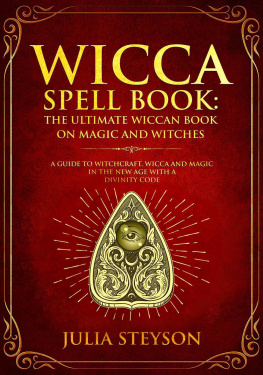
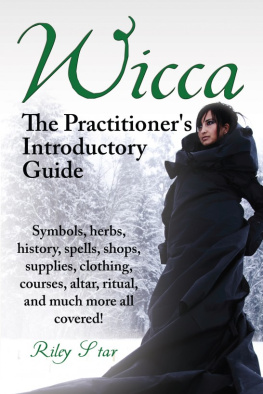
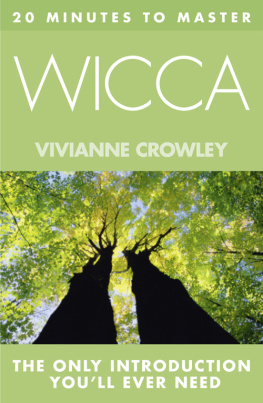

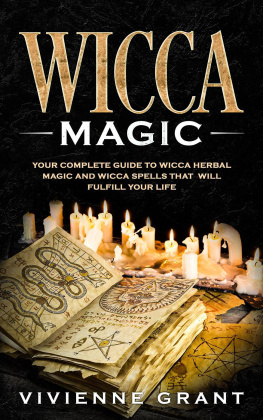
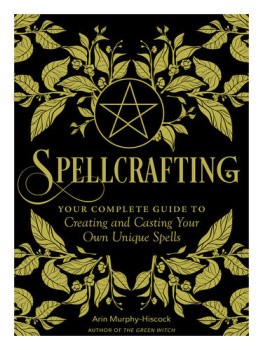


 The Guide of Shadows for Wiccans, Solitary Witches, and Other Practitioners of Magic Rituals
The Guide of Shadows for Wiccans, Solitary Witches, and Other Practitioners of Magic Rituals